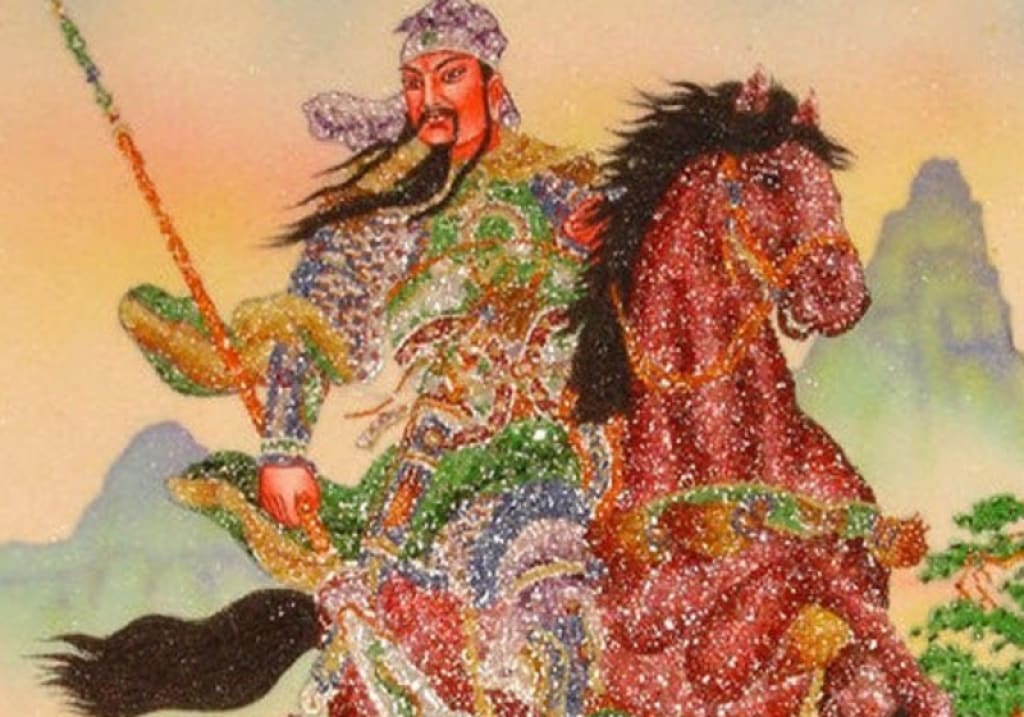Thoughts on Liu Pengli, the Han Dynasty's Serial Killer Prince
Highlighting a Marauding and Killing Prince

Sometimes called the world's first serial killer, Liu Pengli was a 2nd century BC Han prince, and the nephew of the Emperor Jing. Basically, he's early evidence for the theory that power corrupts. While there probably were other, non-royal serial killers in existence, they weren't quite a matter of established record, whereas it's said that this guy is.
It seems not much is known about Liu Pengli, with most biographies saying pretty much the same thing. So, what is to be made of this guy? Perhaps the best approach is to go point-by-point based on what scant information I could find (admittedly, I haven't looked exhaustively for info). Wikipedia sites Qian Sima's 2013 work, "Records of the Grand Historian" (Columbia University Press. p. 387).
It's stated that Pengli "was arrogant and cruel and would go out on marauding expeditions with tens of slaves or young men who were in hiding from the law, murdering people and seizing their belongings for sheer sport."
In other words, Pengli wasn't just a "serial killer" but a marauder, and he didn't act alone. This leads to an interesting and obvious question. Was this guy really a serial killer? Maybe he is, maybe he isn't, and I'll address this more later. For now I would say he was close enough to one, as his behavior showed a complete disregard for innocent life.
His example also suggests the arrogant abuse of power, which has been a problem since the dawn of man. It's also one of the reasons why, despite being constantly told it's wrong, I personally always go back to an anarchic philosophy of some kind. Liu Pengli is just one of endless examples of people of power and privilege abusing those below them.
Of course, I know what some readers might think, "Oh shit, we have an SJW on our hands!" Relax, folks. This would be an example of actual power and privileged being used in a blatantly abusive and even murderous manner, as opposed to some comedian saying an offensive joke (or some silly-billy scandal like that).
Anyway, the quote continues, "Confirmed victims exceeded 100, and these murders were known across the kingdom, so people were afraid of leaving their homes at night."
This reminds me of the effect the Manson murders had on the world, and particularly Los Angeles. I've seen numerous quotes where people said that, before those murders, they wouldn't even lock their door. Considering they lived in a populated area, that would really mean something. Of course, the whole "afraid to leave the home at night" thing is always a bit misguided, as murders (and other crimes) can definitely happen during the day, and often do.
In fact, it may be easier to commit crimes during the day, as people seem more vigilant in general at night, simply due to the stereotypical fear of it being dark out, and that villainous intentions only happen when the sun goes down and the moon is full. In reality, that's unfortunately not the case. Evil stuff can happen 'round the clock. There are no truly safe times of day, and no truly safe people. Never have been, never will be. I know, I'm so great at comforting people!
It goes on, "Eventually, the son of one of his victims accused him to the Emperor, and the officials of the court requested that Liu Pengli be executed; however, the Emperor could not bear to have his own nephew killed, and Liu Pengli was made a commoner and banished to the county of Shangyong [now Zhushan in Hubei Province]."
In other words, Liu Pengli basically got away with murder. Still, it would be interesting to know more about the trial process, and what Pengli's ultimate fate was. What evidence was cited against him? It must have been compelling, but it could have just been eyewitness testimony. I'm not saying he was innocent, but it would be great to learn more of the specifics involved in the guilt determination phase.
Also, as far as I'm concerned, the decision to let him go was bad for the Emperor. If anything, you'd think he'd have executed the guy, just so he could say, "See, even my nephew shall not be spared punishment!" With a little bit of research, you can learn that the Han dynasty did have the death penalty. While I'm personally not an advocate of the death penalty, it's always interesting to see when it is and isn't used, and for what reasons.
"In 116 bc, his sovereignty was abolished and his land was reclaimed by the Emperor Jing."
So there you have it. You misbehave and you lose your land and the right to rule over others. That is, of course, unless you're the Emperor yourself, in which case you may be safe to do just about anything you want. Still, there are limits to what people will take, and surely even Emperors see the merits in seeming restrained or even polite at times.
In some ways, Liu Pengli reminds me of serial killer H. H. Holmes, the so-called "Beast of Chicago." Although Holmes wasn't a rampager, he was no doubt partly inspired by the sheer thrill of stealing and killing. Some may question whether Liu Pengli counts as a real serial killer, due to the "marauding" nature of his crimes. However, if we look at a conventional definition of serial killer, “The unlawful killing of two or more victims by the same offender(s), in separate events,” he could certainly qualify.
One fascinating aspect of serial killers is how they're seemingly caught in a death loop. They're fascinated with murdering people and need to do it again and again. Had the Emperor not stepped in, Pengli would have either kept marauding or faced some sort of war from the populace. In other words, there's almost no way his sprees could have continued like that. One way or the other, he had to face some repercussions. The question is, what happened to him after he lost his power? Did he continue to occasionally kill or did he take the hint?
In any case, Etano Bhagratee has written a track called "The Ballad of Liu Pengli," featuring quotes from an interview with Richard Ramirez.
About the Creator
Wade Wainio
Wade Wainio writes stuff for Show Snob, Undead Walking, Pophorror.com, Vents Magazine and Haunted MTL. He is also an artist, musician and college radio DJ for WMTU 91.9 FM Houghton.






Comments
There are no comments for this story
Be the first to respond and start the conversation.